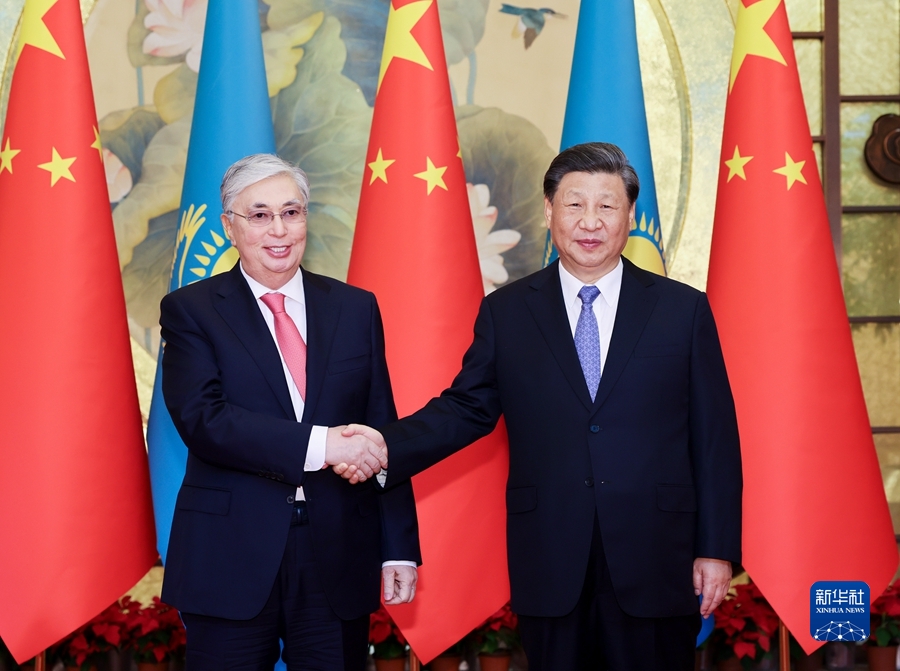Chinese President Xi Jinping arrived in Astana on July 2 for a state visit to Kazakhstan and to attend the 24th Meeting of the Council of Heads of State of the Shanghai Cooperation Organization (SCO). In a written statement upon his arrival, Xi highlighted the unique and comprehensive strategic partnership between China and Kazakhstan, Xinhua informs.

Xi expressed his delight at visiting Kazakhstan at the invitation of Kazakh President Kassym-Jomart Tokayev. He extended sincere greetings and best wishes on behalf of the Chinese government and people to Tokayev and the friendly people of Kazakhstan.
Xi pointed out the long-standing friendship between China and Kazakhstan, dating back over 2,000 years when the ancient Silk Road first connected the two nations. This historical bond has laid a foundation for ongoing friendly exchanges and collaboration.
Since establishing diplomatic ties 32 years ago, the relationship between China and Kazakhstan has evolved into a unique and enduring comprehensive strategic partnership.
Xi recalled his proposal for the Silk Road Economic Belt in Kazakhstan 11 years ago, noting the fruitful results of Belt and Road cooperation between the two nations. Economic and trade cooperation has reached new heights, with numerous highlights in people-to-people and cultural exchanges. The close and efficient international cooperation between China and Kazakhstan has significantly improved the well-being of both peoples and contributed to regional stability and positive energy.
During his visit, Xi plans to hold talks with President Tokayev, focusing on China-Kazakhstan relations, all-round cooperation, and other international and regional issues of mutual concern. The discussions aim to develop new plans and arrangements for the ongoing strategic partnership.
Xi also expressed his anticipation for attending the SCO summit, where he will engage in discussions on the future of the organization and ways to advance cooperation. The goal is to achieve new and greater progress for this important multilateral mechanism.
Comments (0)